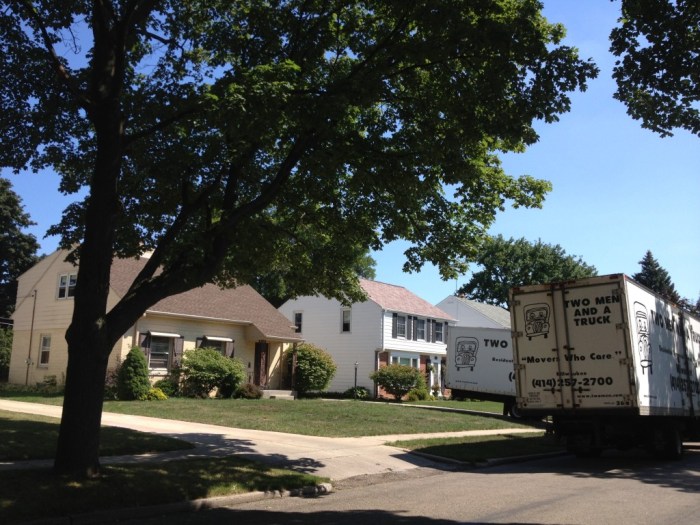My grandmother lives in a condominium – In the realm of senior living, condominiums have emerged as a popular choice, offering a unique blend of comfort, convenience, and social opportunities. In this article, we delve into the world of condominium living for seniors, exploring its advantages, challenges, and the unique experience of my grandmother’s condominium.
From spacious living areas to well-equipped kitchens and accessible bathrooms, condominiums cater to the specific needs of seniors, providing a comfortable and functional living environment.
Condominium Living
Condominium living involves owning a unit within a multi-unit residential building, where the owner holds title to their individual unit and shares ownership of the common areas and amenities with other unit owners.
Advantages:
- Convenience: Access to shared amenities, such as swimming pools, fitness centers, and concierge services.
- Security: Gated communities and security personnel provide enhanced safety.
- Lower maintenance costs: Shared ownership of common areas reduces individual maintenance expenses.
Disadvantages:
- Homeowners association (HOA) fees: Monthly fees cover maintenance and amenities, which can add to living expenses.
- Limited space: Units may be smaller than traditional homes.
- Noise and privacy concerns: Proximity to other units can result in noise or privacy issues.
Amenities and Services:
- Swimming pools
- Fitness centers
- Clubhouses
- Concierge services
- Laundry facilities
- Parking garages
Senior Living in Condominiums: My Grandmother Lives In A Condominium

For seniors, condominium living offers both benefits and challenges.
Benefits:
- Convenience and accessibility: Amenities and services are often located within the building or complex, making it easy for seniors to access essential services.
- Social opportunities: Condominiums often have social events and activities, providing opportunities for seniors to socialize and build a community.
- Security: Gated communities and security personnel provide peace of mind for seniors living alone.
Challenges:
- Physical accessibility: Condominiums may not be suitable for seniors with mobility impairments or limited access to stairs.
- HOA fees: Monthly fees can be a significant financial burden for seniors on fixed incomes.
- Isolation: Seniors who are unable to participate in social activities may experience feelings of isolation.
Tips for Choosing a Condominium for Senior Living:
- Consider accessibility features: Look for units with elevators, ramps, and wide doorways.
- Research HOA fees: Determine the monthly costs and ensure they fit within the senior’s budget.
- Explore social opportunities: Inquire about social events and activities offered within the condominium complex.
Grandmother’s Condominium

| Living Room | Kitchen | Bedroom | Bathroom |
|---|---|---|---|
|
Size: 15′ x 12′ Layout: Open and airy with large windows providing natural light. Furnishings: Comfortable couch, armchair, coffee table, and entertainment center. |
Size: 10′ x 8′ Layout: Galley-style kitchen with ample counter space and storage. Furnishings: Refrigerator, stove, oven, microwave, dishwasher, and a breakfast bar. |
Size: 12′ x 10′ Layout: Spacious and well-lit with a large closet. Furnishings: Queen-sized bed, nightstands, dresser, and a desk. |
Size: 8′ x 6′ Layout: Compact but functional with a walk-in shower. Furnishings: Vanity, mirror, toilet, and grab bars for safety. |
Daily Life in the Condominium

- Waking up and preparing breakfast in the kitchen.
- Spending time in the living room watching TV, reading, or socializing with friends.
- Attending social events or activities organized within the condominium complex.
- Exercising in the fitness center or swimming in the pool.
- Preparing meals in the kitchen or dining out at nearby restaurants.
- Relaxing in the bedroom or taking a nap.
- Socializing with neighbors or participating in community events.
The condominium environment facilitates her daily activities by providing easy access to amenities, such as the fitness center, pool, and social events. It also offers a sense of security and community, which can be particularly important for seniors living alone.
Social and Community Aspects

The condominium complex offers various social opportunities and community involvement for seniors.
- Social events: The complex organizes regular social events, such as potlucks, movie nights, and game nights.
- Community involvement: Seniors can participate in volunteer activities within the complex or in the surrounding community.
- Clubs and groups: The complex has various clubs and groups, such as a book club, knitting group, and a gardening club.
These connections are essential for her well-being as they provide opportunities for socialization, engagement, and a sense of belonging.
Questions Often Asked
What are the advantages of condominium living for seniors?
Condominiums offer seniors a range of advantages, including increased security, reduced maintenance responsibilities, access to amenities such as pools and fitness centers, and opportunities for social interaction.
What are the challenges of condominium living for seniors?
Some potential challenges of condominium living for seniors include the cost of monthly fees, potential noise from neighbors, and limited space compared to single-family homes.
How can seniors choose a condominium that is suitable for their needs?
When choosing a condominium, seniors should consider factors such as the size and layout of the unit, the availability of amenities, the cost of monthly fees, and the location of the complex.